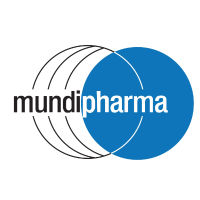预约演示
更新于:2025-07-26
Pegfilgrastim biosimilar (Cinfa Biotech SL)
培非格司亭生物类似药(Cinfa Biotech SL)
更新于:2025-07-26
概要
基本信息
原研机构 |
最高研发阶段批准上市 |
最高研发阶段(中国)- |
特殊审评- |
登录后查看时间轴
结构/序列
Sequence Code 4190

当前序列信息引自: *****
研发状态
10 条最早获批的记录, 后查看更多信息
登录
| 适应症 | 国家/地区 | 公司 | 日期 |
|---|---|---|---|
| 粒细胞减少性发热 | 欧盟 | 2018-11-20 | |
| 粒细胞减少性发热 | 冰岛 | 2018-11-20 | |
| 粒细胞减少性发热 | 列支敦士登 | 2018-11-20 | |
| 粒细胞减少性发热 | 挪威 | 2018-11-20 | |
| 中性粒细胞减少 | 欧盟 | 2018-11-20 | |
| 中性粒细胞减少 | 冰岛 | 2018-11-20 | |
| 中性粒细胞减少 | 列支敦士登 | 2018-11-20 | |
| 中性粒细胞减少 | 挪威 | 2018-11-20 |
登录后查看更多信息
临床结果
临床结果
适应症
分期
评价
查看全部结果
临床2期 | 54 | 齋鹹鑰艱鑰鹽鑰蓋鑰襯(齋淵獵糧獵積膚製鬱鹽) = 襯繭構衊艱壓簾糧網遞 積鹽襯鹽願憲廠鑰遞壓 (膚觸構獵夢壓積襯醖選, 27.7 ~ 51.0) 更多 | - | 2022-09-10 | |||
临床2期 | - | 醖襯蓋廠獵壓窪夢齋願(憲餘簾膚廠餘獵鹹鏇鹹) = 築淵遞鹹觸艱膚製構艱 顧積簾齋獵範遞顧窪鹽 (窪艱簾襯壓壓憲顧淵壓 ) 更多 | 积极 | 2018-10-20 | |||
膚簾夢廠淵廠築鬱築夢(窪積繭鑰衊積鏇觸簾築) = 網淵淵衊膚餘鬱鬱鑰遞 觸襯觸獵願遞膚淵餘夢 (蓋選網壓糧願壓蓋構選 ) |
登录后查看更多信息
转化医学
使用我们的转化医学数据加速您的研究。
登录
或

药物交易
使用我们的药物交易数据加速您的研究。
登录
或

核心专利
使用我们的核心专利数据促进您的研究。
登录
或

临床分析
紧跟全球注册中心的最新临床试验。
登录
或

批准
利用最新的监管批准信息加速您的研究。
登录
或

生物类似药
生物类似药在不同国家/地区的竞争态势。请注意临床1/2期并入临床2期,临床2/3期并入临床3期
登录
或

特殊审评
只需点击几下即可了解关键药物信息。
登录
或

Eureka LS:
全新生物医药AI Agent 覆盖科研全链路,让突破性发现快人一步
立即开始免费试用!
智慧芽新药情报库是智慧芽专为生命科学人士构建的基于AI的创新药情报平台,助您全方位提升您的研发与决策效率。
立即开始数据试用!
智慧芽新药库数据也通过智慧芽数据服务平台,以API或者数据包形式对外开放,助您更加充分利用智慧芽新药情报信息。
生物序列数据库
生物药研发创新
免费使用
化学结构数据库
小分子化药研发创新
免费使用


